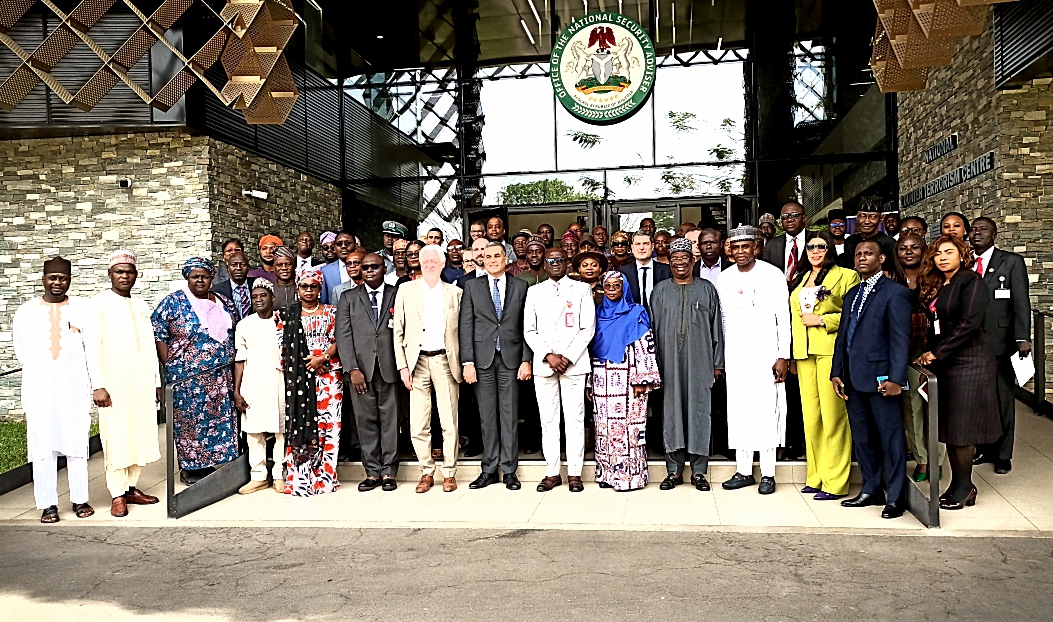By Sumaila Ogbaje
Nigeria has made significant strides in implementing various aspects of the Preventing and Countering Violent Extremism (PCVE) programmes and initiatives.
Maj.-Gen. Adamu Laka, the National Coordinator of the National Counter Terrorism Centre,(NCTC-ONSA), said this at a Stakeholders’ Consultative Meeting.
The meeting was organised for the Review of Policy Framework and National Action Plan Preventing and Countering Violent Extremism (PF–NAP for PCVE) in Nigeria, on Wednesday in Abuja.
The PF-NAP was adopted in 2017.
Laka said that multi-sectorial, whole-of-government and whole-of-society approach had enabled collaboration between government, civil society, and international partners, leading to impactful interventions at the national, state, and sub-national levels.
According to him, in spite of the progress, challenges remain.
“The NCTC has been at the forefront of coordinating PCVE efforts nationwide, ensuring that interventions are evidence-based, strategic, and aligned with national security objectives.
“Our commitment to this mandate is unwavering, and we are dedicated to strengthening the institutionalisation of PCVE in Nigeria through effective coordination, stakeholder engagement, and knowledge-driven decision-making.
“We have actively engaged with stakeholders and partners to understand the evolving landscape of violent extremism and the key challenges facing our interventions.
“This has enabled us to reposition NCTC-ONSA to deliver effectively on its mandate,’’ he said.
Laka said a validation meeting reviewed the Draft Guidelines and the Draft Strategic Communications Plan for PCVE/DDRR.
This, he said, was a testament to NCTC commitment to addressing critical gaps in the PCVE interventions.
“These documents will significantly enhance our collective response to violent extremism and ensure greater coordination across all levels,” he said.
Laka urged all stakeholders including government agencies, international partners, donors, CSOs, and community actors to actively contribute, share insights, and provide strategic support to ensure successful revision of the PF-NAP for PCVE.
According to him, their engagement will not only strengthen Nigeria’s response but will reinforce our commitment to sustainable peace, security, and national stability.
“Together, let us build a more inclusive, effective, and sustainable framework that will shape Nigeria’s PCVE interventions for years to come,” he added.
The Director of PCVE at NCTC-ONSA, Amb. Mairo Abbas, said the primary objective of the meeting was to engage critical stakeholders in the review process of the existing PF-NAP.
Abbas said the meeting would provide an opportunity for inclusive consultation, ensuring the revised framework was comprehensive, effective and responsive to the current and emerging trends of violent extremism in Nigeria.
“This engagement is essential because PCVE is a multi-sectorial issue that requires a whole-of-society approach, bringing together government institutions, civil society, development partners, and the private sector.
“Through this consultative process, we aim to institutionalise lessons learned, integrate best practices, and enhance coordination in our collective efforts to counter violent extremism,” she said.
Abbas said that key focus areas include assessing the implementation of the 2017 PF-NAP; institutionalising success stories and enhancing coordination and stakeholder engagement, among others. (NAN)

